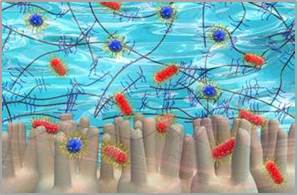Founded in December 2018, the Laboratory of Theoretical and Computational Nanoscience is dedicated tothe multi-scale theory and computational research of nanostructured materials and biological systems. The main research fields include: precise self-assembly, nano-drugs, nano-catalysis, and design of new functional materials. First-principle calculations, molecular dynamics methods, Monte Carlo methods, finite element methods, and machine learning methods are used to interpret and predict experimental phenomena and mechanisms, and strive to understand the Nano World at the atomic and molecular levels.
Research field
- Nanocatalysis. Computational study on the electronic structure, molecular structure, physicochemical properties of nanomaterials and their surface adsorption and catalytic mechanism in energy, environment, biology, medicine, etc., and improvement and design of new nanomaterials from the molecular level.
- Nano drugs. Develop theoretical and computational method to study the physicochemical properties of nanoparticles and the physicochemical properties of complex media in the process of nano drug transport.
- Precise self-assembly. Computational study of the self-assembly process of nanoparticles, including the assembly of atoms, molecules, supramolecular aggregates, interpretation of mechanisms and design of functional nanoparticles for catalysis, drugs and so on.

Founded in December 2018, the Laboratory of Theoretical and Computational Nanoscience is dedicated tothe multi-scale theory and computational research of nanostructured materials and biological systems. The main research fields include: precise self-assembly, nano-drugs, nano-catalysis, and design of new functional materials. First-principle calculations, molecular dynamics methods, Monte Carlo methods, finite element methods, and machine learning methods are used to interpret and predict experimental phenomena and mechanisms, and strive to understand the Nano World at the atomic and molecular levels.
Research field
- Nanocatalysis. Computational study on the electronic structure, molecular structure, physicochemical properties of nanomaterials and their surface adsorption and catalytic mechanism in energy, environment, biology, medicine, etc., and improvement and design of new nanomaterials from the molecular level.
- Nano drugs. Develop theoretical and computational method to study the physicochemical properties of nanoparticles and the physicochemical properties of complex media in the process of nano drug transport.
- Precise self-assembly. Computational study of the self-assembly process of nanoparticles, including the assembly of atoms, molecules, supramolecular aggregates, interpretation of mechanisms and design of functional nanoparticles for catalysis, drugs and so on.

 Close Page
Close Page- Text Size: A A A
 Printer Friendly
Printer Friendly
